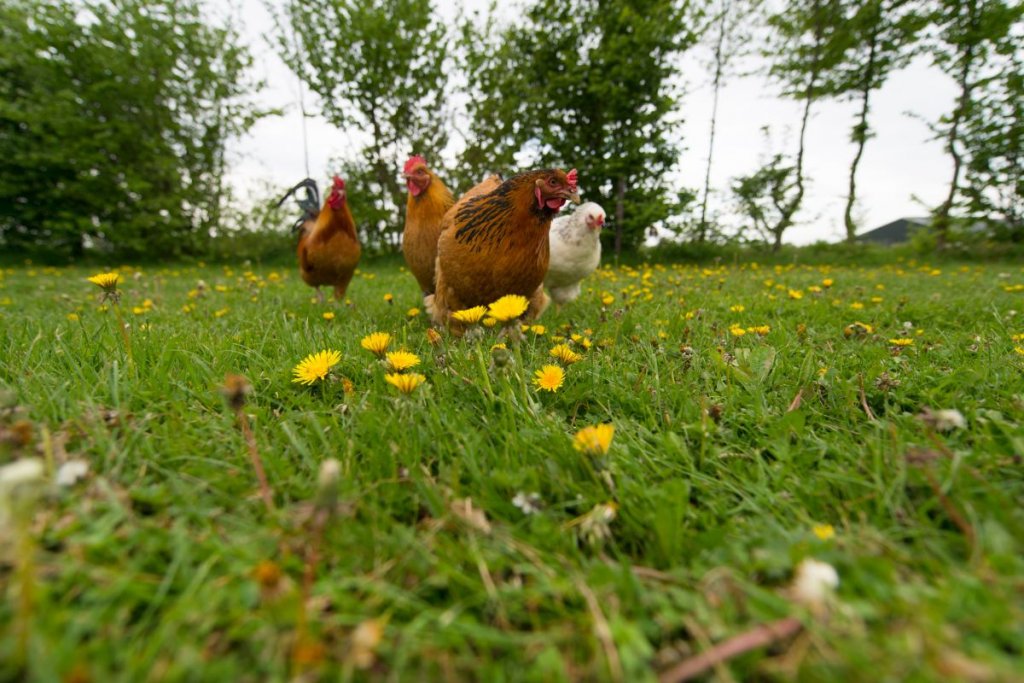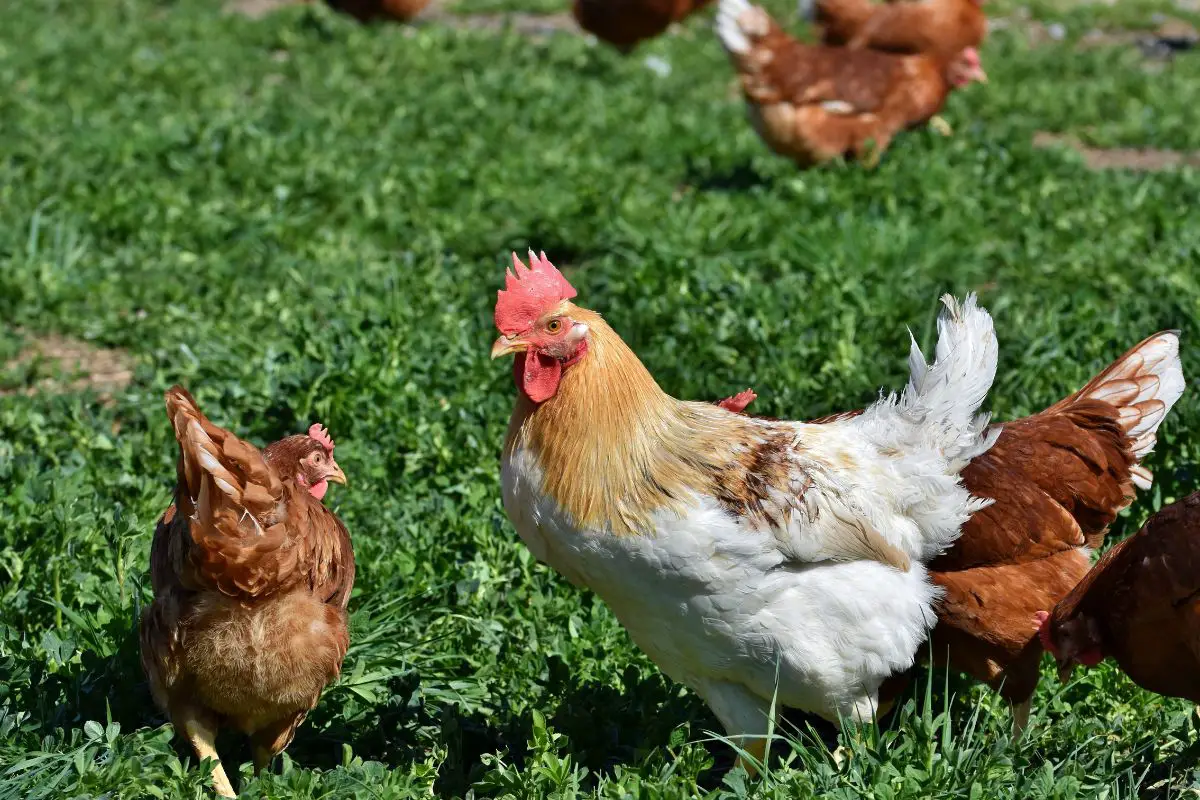Chickens do eat ticks without any impact to their health. If ticks are present on your property, they can form a staple part of your flock's diet, while providing you with some form of natural pest control. However, you should not depend solely on chickens to eliminate ticks from your property.
If you live in a tick-infested region, you already know that ticks are a huge problem for people and animals alike. These harmful parasites can transmit some major health problems, including Lyme Disease, Babesiosis, and Anaplasmosis.
Sadly, other tick-borne illnesses like Powassan Virus, Tularemia, and Rocky Mountain Spotted Fever are also a major concern. Fortunately, by simply allowing your chickens to free range, you’ll go a long way to reduce a tick population.
Table of Contents
Can Chickens Help Control Tick Populations?
Chickens are natural predators for pests like ticks, so they are a great option for tick control. These relentless hunters will not only target ticks but also mosquito larvae, flea eggs and other bugs and insects.
So allowing your flock of chickens to forage freely in your backyard or garden can significantly reduce tick populations. Chickens are omnivorous animals that subsist on insects and bugs as well as plant-based foods.
It’s almost impossible for a homestead to exist without ticks and other critters, and yet, they offer no value to their hosts, apart from a free meal for your chickens.
How Many Ticks Can Chickens Eat?
The more time you allow your flock of chickens to range freely on your grounds, the higher the number of ticks they will eliminate. The more aggressive chickens with a confident attitude can even pick ticks off livestock.
Chickens are ferocious feeders and can eat ticks at a surprising rate. In fact, the average chicken eats about 80 ticks an hour!
According to a 1991 study, chickens can, in fact, greatly decrease tick populations. The sample flock in this study was allowed to range freely around a tick-infested ground for 30 to 60 minutes. For that duration, it was found that these birds consumed over 80 ticks per bird, translating to a total of 331 ticks.

That means chickens can be effective at controlling ticks. Chickens are omnivores and feed mainly on ticks, bugs, pests, and plants. They don’t just do this to help you out, but it is the staple of the natural diet.
Best Types of Chickens for Tick Control
If you are faced with a tick problem, you’ll be happy to know that there are many types of chicken that will happily consume these pests. However, some types are more excited about foraging for insects than others.
Here are the best chickens to buy if you want to destroy your tick populations:
Ameraucana
Known for being an excellent forager, the Ameraucana is a 1970s mix that originated from Chile. This bird has a long egg-laying season and lays bluish eggs.
Brown Leghorn
Previously called the “Italian”, the Brown Leghorn is a slender chicken that lays white eggs. This breed of chicken is also a wonderful forager and will happily help you with pest and tick control.
Andalusian
The Andalusian is a rugged bird that originated from Spain. It also forages remarkably well and lays large eggs.
Guinea Hens
Guinea hens are widely considered to be the best fowls for tick control. Guineas can help reduce the keeper’s risk of tick-borne diseases like Lyme disease by eating deer ticks and fowl ticks.
Fortunately, neither chickens nor guinea fowls are picky about the tick species they eat and will be equally as happy to feed on a brown tick as an American dog tick.
Other Ways to Minimize Tick Bites
Chickens won’t eliminate 100% of your ticks as any bug can simply fly in from a neighboring property.
While you probably will notice a decrease of ticks, you should still take reasonable steps to protect yourself and your family from ticks and tick-borne diseases, such as:
- Check your kids for ticks after handling chickens. Ticks love moist, dark places so the earlier you remove them, the better! They can suck blood until they are full and then regurgitate a small amount. This practice is ultimately what transmits diseases. To remove ticks, pluck the tick with tweezers, but avoid squeezing it near your body to prevent regurgitation.
- Cut your grass short since ticks are fond of hiding in long grass. This will make your chicken’s pecking life so much easier!
- Use EPA-approved bug spray on clothing and exposed skin. This should only be used in extreme infestations.
- Wear long pants and long sleeves when working near tall grass, bushes or large trees
- Use Diatomaceous earth (DE). One natural treatment for ticks is Diatomaceous Earth which is a white powder derived from dinosaur bones. DE simply works by desiccating insects and cutting them into pieces with its tiny sharp edges. You can add DE directly into their chicken coops.
Ultimately, encourage your flock of chickens to keep roaming around so you can control tick populations in your homestead and lower the risk of your family members or yourself contracting a tick-borne disease.

